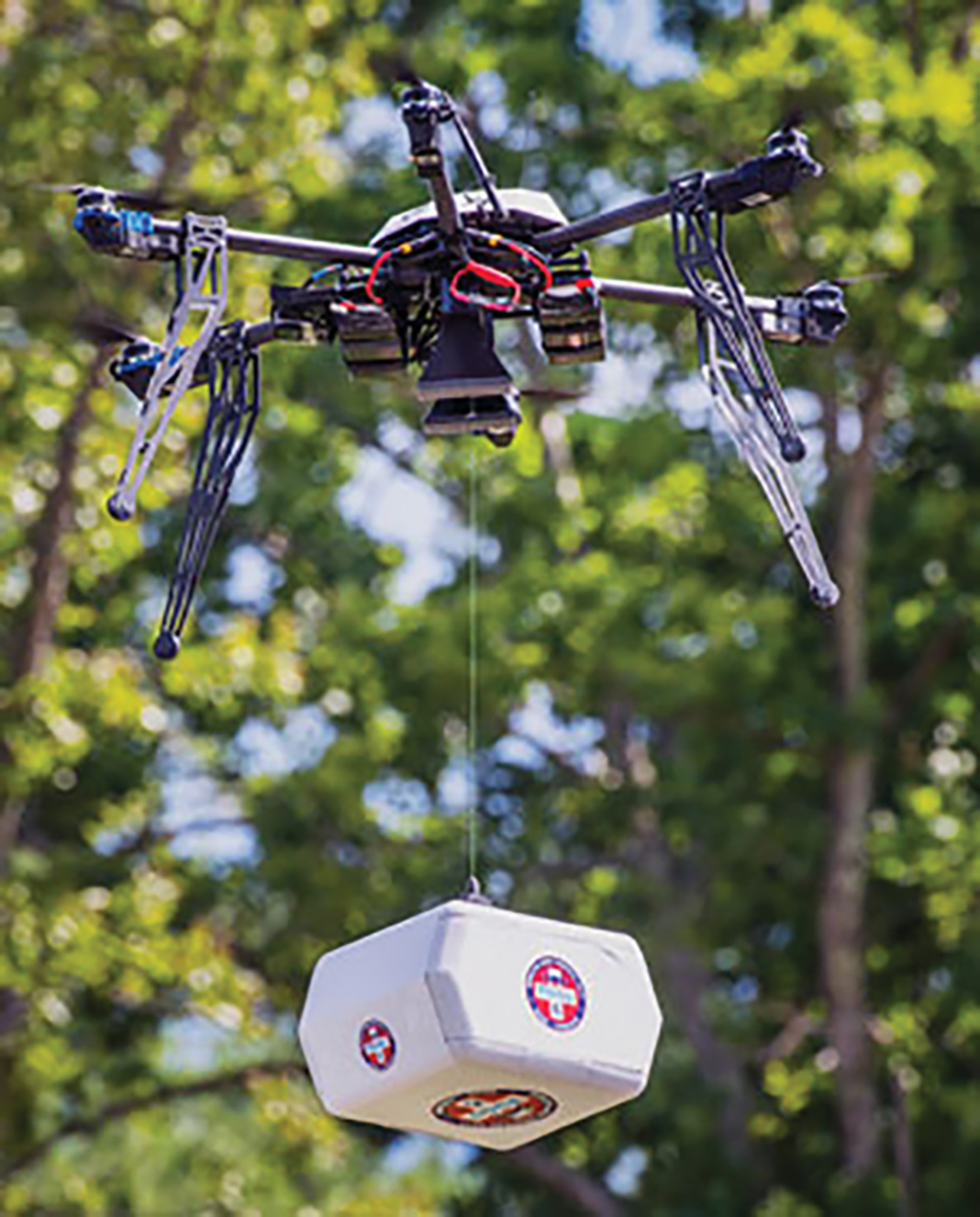
Rapidly emerging new technologies offer a reason for excitement in caring for the health of Alabama’s rural areas. Alabama faces a great challenge to provide adequate and quality health care for one of the country’s most unhealthy populations. The use of drones (also called unmanned aircraft systems UAS) is one such promising technology that we need to be prepared to embrace and develop plans for using.
Military and smart phone technologies have played major roles in the rapid development of drone technology and capability. Having the ability to inspect from above and move in straight lines offer many advantages that surface bound travel does not have. This technology continues to advance at a rapid pace with drones getting faster, being able to carry heavier cargos, and travel greater distances without the cost of gasoline. The futuristic city of Dubai in the United Arab Emirates is even considering the use of passenger-carrying drones that are manufactured in China.
Zipline, a Silicon Valley-based company, has been transporting medical supplies and life-saving blood to and bringing back specimens for laboratory testing from dozens of remote hospitals in Rwanda since October 2016. Lighter air traffic allowed governmental restrictions to be much less restrictive in Rwanda than in the U.S. Zipline has announced plans to work with state governments across the country to launch its medical drone delivery in the U.S.
This will not be the first such use of drones in the U.S. Since July 2015, The Health Wagon and Remote Area Medical have partnered to provide medication delivery in the Appalachian area of Wise County in far southwest Virginia.
Drones are already being used for purposes in addition to health care in the U.S. There is much promise for agricultural applications, including crop inspection and treatment. Package delivery, search and rescue activities, aerial photography, parking lot and other security monitoring, damage surveying, and firefighting are only a few other examples.
According to the Federal Aviation Administration’s Birmingham office, two waivers allowing the use of drones in Alabama have been approved. These waivers allow for drones to be used for weddings, parties, other events, boating and water sports, video production, construction, construction inspection, roof inspection, agriculture, surveying, mapping, and other such applications. No health-related services are being provided.
Safety and legal concerns appear to be the major obstacles. Safety issues involve birds and areas with heavy airplane traffic. There are a number of legal issues, including that of personal privacy.
Alabama’s leadership and other stakeholders involved in the future use of drones in providing health-related activity are encouraged to start preparing for the use of this promising innovation.
Dale Quinney is executive director of the Alabama Rural Health Association, 1414 Elba Highway, Troy, 36081.




